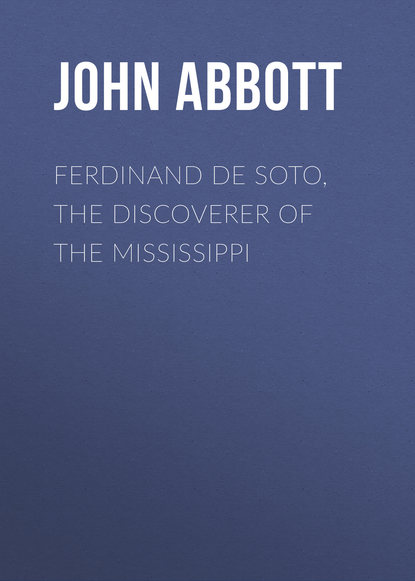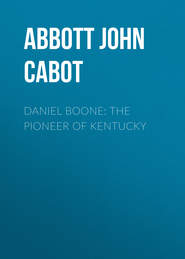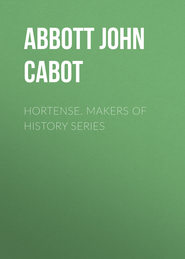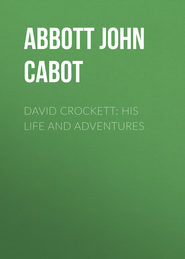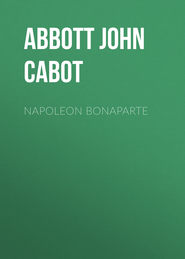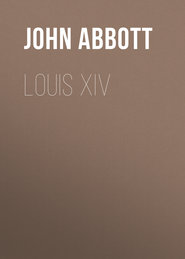По всем вопросам обращайтесь на: info@litportal.ru
(©) 2003-2024.
✖
Ferdinand De Soto, The Discoverer of the Mississippi
Настройки чтения
Размер шрифта
Высота строк
Поля
Casquin was very indignant. He did everything in his power to excite the hostility of De Soto against Capaha, but all was in vain. The Governor was highly displeased with the trick Casquin had played upon him, in setting out on a military expedition under the guise of an honorary escort. He despised the cowardice which Casquin's troops had evinced in the battle, and he respected the courage which Capaha had exhibited, and the frankness and magnanimity of his conduct. He therefore issued orders to his own and the native army that no one should inflict any injury whatever, either upon the persons or the property of the natives of the province. He allowed Casquin to remain in his camp and under his protection for a few days, but compelled him to send immediately home the whole body of his followers, retaining merely enough vassals for his personal service.
The next morning Capaha himself, accompanied by a train of one hundred of his warriors, fearlessly returned to his village. He must have had great confidence in the integrity of De Soto, for by this act he placed himself quite in the power of the Spaniards. Immediately upon entering the village, he visited the desecrated mausoleum of his ancestors, and in silent indignation repaired, as far as possible, the injury which had been done. He then proceeded to the headquarters of De Soto. The Spanish Governor and Casquin were seated together.
Capaha was about twenty-six years of age, of very fine person and of frank and winning manners. With great cordiality he approached De Soto, reiterating his proffers of friendship, and his earnest desire that kindly feelings should be cherished between them. Casquin he treated with utter disdain, paying no more attention to him than if he had not been present. For some time the Indian Cacique and the Spanish Governor conversed together with perfect frankness and cordiality. A slight pause occurring in their discourse, Capaha fixed his eyes sternly for a moment upon Casquin and said, in tones of strong indignation, —
"You, Casquin, undoubtedly exult in the thought that you have revenged your past defeats. This you never could have done through your own strength. You are indebted to these strangers for what you have accomplished. Soon they will go on their way. But we shall be left in this country as we were before. We shall then meet again. Pray to the gods that they may send us good weather."
De Soto humanely did everything in his power to promote reconciliation between the hostile chieftains. But all was in vain. Though they treated each other with civility, he observed frequent interchanges of angry glances.
The Spaniards found, in this town, a great variety of valuable skins of deer, panthers, buffalo and bears. Taught by the Indians, the Spaniards made themselves very comfortable moccasons of deerskin, and also strong bucklers, impervious to arrows, of buffalo hide.
After making minute and anxious inquiries for gold, and ascertaining that there was none to be found in that direction, De Soto turned his desponding steps backwards to Kaska. Here he remained for four days, preparing for a march to the southward. He then continued his progress nine days down the western bank of the river, until, on the fourth of August, he reached a province called Quigate. His path had led him through a populous country, but the Indians made no attempt to molest his movements. It is supposed that Quigate must have been on the White river, about forty or fifty miles from its mouth. Here De Soto learned that, faraway in the northwest there was a range of mountains, and there he thought might perhaps be the gold region of which he had so long been in search.
Immediately he put his soldiers in motion, led by a hope which was probably rejected by every mind in the army, except his own. A single Indian guide led them on a weary tramp for many days, through dreary morasses and tangled forests. They at length came to a village called Coligoa, which is supposed to have been upon the banks of White river. The natives at first fled in terror at their approach, but as no hostility was manifested by the Spaniards, they soon gained confidence, and returned with kind words and presents. But there was no gold there, and no visions of gold in the distance.
The chief informed De Soto that there was a very rich and populous province about thirty miles to the south, where the inhabitants were in the enjoyment of a great abundance of the good things of life. Again the Spaniards took up their line of march in that direction. They found a fertile and quite thickly inhabited country on their route. The Indians were friendly, and seemed to have attained a degree of civilization superior to that of most of the tribes they had as yet visited. The walls of the better class of houses were hung with deerskins, so softly tanned and colored that they resembled beautiful tapestry. The floors were also neatly carpeted with richly decorated skins.
The Spaniards seem to have travelled very slowly, for nine days were occupied in reaching Tanico, in the Cayas country, which was situated probably upon Saline river, a branch of the Washita. Here they found some salt springs, and remained several days to obtain a supply of salt, of which they were greatly in need. Turning their steps towards the west, still groping blindly, hunting for gold, they journeyed four days through a barren and uninhabited region, when suddenly they emerged upon a wide and blooming prairie.
In the centre, at the distance of about a couple of miles, between two pleasant streams, they saw quite a large village. It was mid-day, and the Governor encamped his army in the edge of the grove, on the borders of the plain. In the afternoon, with a strong party of horse and foot, he set out upon a reconnoitering excursion. As he approached the village the inhabitants, men and women, sallied forth and attacked him with great ferocity. De Soto was not a man ever to turn his back upon his assailants. The Spaniards drew their sabres, and, all being in armor, and led by charges of the horsemen, soon put the tumultuous savages to flight, and pursued them pell-mell into the village.
The natives fought like tigers from doors, windows, and housetops. The exasperated Spaniards, smarting with their wounds, and seeing many of their comrades already slain, cut down their foes remorselessly. The women fell before their blows as well as the men, for the women fought with unrelenting fierceness which the Spaniards had never seen surpassed. Night came on while the battle still raged, with no prospect of its termination. De Soto withdrew his troops from the village, much vexed at having allowed himself to be drawn into so useless a conflict, where there was nothing to be gained, and where he had lost several valuable men in killed, while many more were wounded.
The next morning De Soto put his whole army in motion and advanced upon the village. They found it utterly abandoned. Strong parties were sent out in all directions to capture some of the natives, that De Soto might endeavor to enter into friendly relations with them. But it seemed impossible to take any one alive. They were as untamable and as savage as bears and wolves, fighting against any odds to the last gasp. Both women and men were exceedingly ill-looking, with shapeless heads, which were said to have been deformed by the compression of bandages in infancy. The province was called Tula, and the village was situated, it is supposed, between the waters of the upper Washita and the little Missouri.
The Spaniards remained in the village four days, when suddenly, in the darkness of midnight, the war-whoop resounded from three different directions, and three large bands of native warriors, who had so stealthily approached as to elude the vigilance of the sentinels, plunged into the village in a simultaneous attack. Egyptian darkness enveloped the combatants, and great was the confusion, for it was almost impossible to distinguish friend from foe. The Spaniards, to avoid wounding each other, incessantly shouted the name of the Virgin. The savages were armed with bows and arrows and with javelins, heavy, sharp-pointed, and nine or ten feet in length, which could be used either as clubs or pikes. Wielded by their sinewy arms, in a hand-to-hand fight, the javelin proved a very formidable weapon.
The battle raged with unintermitted fury till the dawn of the morning. The savages then, at a given signal, fled simultaneously to the woods. The Spaniards did not pursue them. Thoroughly armored as they were, but four of their number were killed, but many were severely wounded. It was nearly twenty days before the wounded were so far convalescent that the army could resume its march. The following incident illustrates the almost unexampled ferocity of these barbaric warriors:
The morning after the battle a large number of the Spanish soldiers, thoroughly armed, were exploring the fields around the village, on foot and on horseback. Three foot soldiers and two mounted men were in company. One of them saw in a thicket an Indian raise his head and immediately conceal it. The foot soldier ran up to kill him. The savage rose, and with a ponderous battle-axe which he had won from the Spaniards the day before, struck the shield of the Spaniard with such force as to cut it in two, at the same time severely wounding his arm. The blow was so violent and the wound so severe, that the soldier was rendered helpless. The savage then rushed upon another of the foot soldiers, and in the same way effectually disabled him.
One of the horsemen, seeing his companions thus roughly handled, put spurs to his steed and charged upon the Indian. The savage sprang to the trunk of an oak tree, whose low hanging branches prevented the near approach of the trooper. Watching his opportunity, he sprang forth and struck the horse such a terrible blow with his axe as to render the animal utterly incapable of moving. Just at this moment the gallant Gonsalvo Sylvestre came up. The Indian rushed upon him, swinging his battle-axe in both hands; but Sylvestre warded the blow so that the axe glanced over his shield and buried its edge deeply in the ground.
Instantly the keen sabre of Sylvestre fell upon the savage, laying open his face and breast with a fearful gash, and so severing his right hand from the arm that it hung only by the skin. The desperate Indian, seizing the axe between the bleeding stump and the other hand, attempted to strike another blow. Again Sylvestre warded off the axe with his shield, and with one blow of his sword upon the waist of the naked Indian so nearly cut his body in two that he fell dead at his feet.
During the time the Spaniards tarried in Tula many foraging excursions were sent out to various parts of the province. The region was populous and fertile, but it was found impossible to conciliate in any degree the hostile inhabitants.
Again the soldiers were in motion. They directed their steps towards the northwest, towards a province named Utiangue, which was said to be situated on the borders of a great lake, at the distance of about two hundred and forty miles. They hoped that this lake might prove an arm of the sea, through which they could open communications with their friends in Cuba, and return to them by water. The journey was melancholy in the extreme, through a desolate country occupied by wandering bands of ferocious savages, who were constantly assailing them from ambuscades by day and by night.
At length they reached the village of Utiangue, the capital of the province. It was pleasantly situated on a fine plain upon the banks of a river, which was probably the Arkansas. Upon the approach of the Spaniards the inhabitants had abandoned the place, leaving their granaries well stocked with corn, beans, nuts, and plums. The meadows surrounding the town offered excellent pasturage for the horses. As the season was far advanced, De Soto decided to take up his winter quarters here. He fortified the place, surrounding it with strong palisades. To lay in ample stores for the whole winter, foraging parties were sent out, who returned laden with dried fruits, corn, and other grain.
Deer ranged the forests in such numbers that large quantities of venison were obtained. Rabbits also were in abundance. The Cacique, who kept himself aloof, sent several messengers to De Soto, but they so manifestly came merely as spies, and always in the night, that De Soto gave orders that none should be admitted save in the daytime. One persisting to enter was killed by a sentinel. This put an end to all intercourse between De Soto and the chief; but the Spaniards were assaulted whenever the natives could take any advantage of them on their foraging expeditions.
Here the Spaniards enjoyed on the whole, the most comfortable winter they had experienced since they entered Florida. Secure from attack in their fortified town, sheltered from the weather in their comfortable dwellings, and with a sufficient supply of food, they were almost happy, as they contrasted the comforts they then enjoyed with the frightful sufferings they had hitherto experienced. During the winter, the expedition met with a great loss from the death of its intelligent interpreter, Juan Ortiz. In reference to his services, Mr. Pickett says:
"Understanding only the Floridian language, he conducted conversations through the Indians of different tribes who understood each other and who attended the expedition. In conversing with the Chickasaws, for instance, he commenced with the Floridian, who carried the word to a Georgian, the Georgian to the Coosa, the Coosa to the Mobilian, and the latter to the Chickasaw. In the same tedious manner the reply was conveyed to him and reported to De Soto."
During the winter at Utiangue, the views and feelings of the Governor apparently experienced quite a change. His hopes of finding gold seem all to have vanished. He was far away in unknown wilds, having lost half his troops and nearly all his horses. The few horses that remained, were many of them lame, not having been shod for more than a year. He did not hesitate to confess, confidentially to his friends, his regret that he had not joined the ships at Pensacola. He now despairingly decided to abandon these weary and ruinous wanderings, and to return to the Mississippi river. Here he would establish a fortified colony, build a couple of brigantines, send them to Cuba with tidings of safety to his wife, and procure reinforcements and supplies. It seems that his pride would not allow him to return himself a ruined man to his friends.
With the early spring he broke up his cantonment, and commenced a rapid march for the Mississippi. He had heard of a village called Anilco, at the mouth of a large stream emptying into that majestic river. They followed down the south side of the Arkansas river for ten days, when they crossed on rafts to the north or east side. It was probably the intention of De Soto to reach the Mississippi nearly at the point at which they had crossed it before.
Continuing his journey through morasses and miry grounds, where the horses often waded up to their girths in water, where there were few inhabitants, and little food to be obtained, he at length reached the village of Anilco, and found it to be on the northern bank of the Arkansas river. Here he learned that, at the distance of some leagues to the south, there was a populous and fertile country such as he thought would be suitable for the establishment of his colony. Again he crossed the Arkansas river to the south side, and moving in a southerly direction reached the Mississippi at a village called Guachoya, about twenty miles below the mouth of the Arkansas river.
CHAPTER XIX
Death of De Soto
Ascent of the Mississippi. – Revenge of Guachoya. – Sickness of De Soto. – Affecting Leave-taking. – His Death and Burial. – The March for Mexico. – Return to the Mississippi. – Descent of the River. – Dispersion of the Expedition. – Death of Isabella.
The village of Guachoya was situated on a bluff on the western bank of the Mississippi, and was strongly fortified with palisades. De Soto succeeded in establishing friendly relations with the chief, and was hospitably entertained within the town. The Cacique and Governor ate at the same table, and were served by Indian attendants. Still, for some unexplained reason, the Cacique with his warriors retired at sunset in their canoes, to the eastern side of the Mississippi, and did not return till after sunrise the next morning.
De Soto's great anxiety now was to get access to the ocean. But he could not learn that the Cacique had ever heard of such a body of water. He then sent Juan de Añasco with eight horsemen to follow down the banks of the river in search of the sea. They returned in eight days, having explored but about fifty miles, in consequence of the windings of the stream and the swamps which bordered its banks. Upon this discouraging information, the Governor decided to build two brigantines at Guachoya, and to establish his colony upon some fertile fields which he had passed between Anilco and that place. This rendered it very important for him to secure abiding friendly relations with the chiefs of both of these provinces.
The territory indeed upon which he intended to settle, was within the province of Anilco, and on the north bank of the Arkansas. The chief Guachoya, very kindly offered to supply De Soto with eighty large and many small canoes with which a portion of his force with the baggage could ascend the Mississippi, twenty-one miles to the mouth of the Arkansas, and then ascending that stream about forty miles would reach the point selected for the settlement. The Governor and the chief, with united military force in light marching order, would proceed by land so as to reach the spot about the same time as the canoes.
Four thousand Indian warriors embarked in these canoes, and in three days accomplished the voyage. At the same time, the land forces commenced their march. The Cacique led two thousand warriors, besides the attendants. Mr. Irving writes:
"The two expeditions arrived safely at the time opposite the village. The chief of Anilco was absent, but the inhabitants of the place made a stand at the pass of the river. Nuño Tobar fell furiously upon them with a party of horse. Eager for the fight, they charged so heedlessly that each trooper found himself surrounded by a band of Indians. The poor savages, however, were so panic-stricken that they turned their backs upon the village, and fled in wild disorder to the forests, amid the shouts of the pursuers, and the shrieks and cries of the women and children.
"On entering the conquered village, they massacred all they met, being chiefly old men, women and children, inflicting the most horrible barbarities.
"In all this they acted in such fury and haste, that the mischief was effected almost before De Soto was aware of it. He put an end to the carnage as speedily as possible, reprimanded the Cacique severely, forbade any one to set fire to a house, or injure an Indian under pain of death, and hastened to leave the village, taking care that the Indian allies should be the first to pass the river, and none remained behind to do mischief."
From this untoward enterprise De Soto returned to the village of Guachoya, renouncing all idea of establishing his colony in Anilco. He immediately commenced with all energy building his two brigantines, while he looked anxiously about in search of some region of fertility and abundance, where his army could repose till the envoys should bring back a sufficient fleet to transport those to Cuba who should wish to return there, and could also bring those reinforcements and supplies essential to the establishment of the colony. The river at this point was about a mile and a half in width. The country on both sides was rich in fertility, and thickly inhabited.
Upon the eastern bank there was a province called Quigualtanqui, of which De Soto heard such glowing reports that he sent an exploring party to examine the country. By fastening four canoes together, he succeeded in transporting the horses across the stream. To his disappointment he found the Cacique deadly hostile. He sent word to De Soto that he would wage a war of utter extermination against him and his people, should they attempt to invade his territories.
Care, fatigue and sorrow now began to show their traces upon the Governor. He could not disguise the deep despondency which oppressed him. His step became feeble, his form emaciate, his countenance haggard. A weary, grief-worn pilgrim, he was in a mood to welcome death, as life presented him nothing more to hope for. A slow fever aggravated by the climate, placed him upon a sick bed. Here, the victim of the most profound melancholy, he was informed that the powerful chief, Quigualtanqui, was forming a league of all the neighboring tribes for the extermination of the Spaniards. De Soto's arm was paralyzed and his heart was broken. He had fought his last battle. His words were few; his despondency oppressed all who approached his bedside. Day after day the malady increased until the fever rose so high, that it was manifest to De Soto, and to all his companions, that his last hour was at hand.
Calmly and with the piety of a devout Catholic, he prepared for death. Luis De Moscoso was appointed his successor in command of the army, and also the successor of whatever authority and titles De Soto might possess, as Governor of Florida. He called together the officers and most prominent soldiers, and with the trembling voice of a dying man administered to them the oath of obedience to Moscoso. He then called to his bedside, in groups of three persons, the cavaliers who had so faithfully followed him through his long and perilous adventures, and took an affectionate leave of them. The common soldiers were then, in groups of about twenty, brought into the death chamber, and tenderly he bade them adieu.
These war-worn veterans wept bitterly in taking leave of their beloved chief. It is worthy of record that he urged them to do all in their power to convert the natives to the Christian religion; that he implored the forgiveness of all whom he had in any way offended; and entreated them to live as brothers, loving and helping one another. On the seventh day after he was attacked by the fever, he expired.
"He died," writes the Inca, "like a Catholic Christian, imploring mercy of the most Holy Trinity, relying on the protection of the blood of Jesus Christ our Lord, and the intercession of the Virgin and of all the celestial court, and in the faith of the Roman church. With these words repeated many times, he resigned his soul to God; this magnanimous and never-conquered cavalier, worthy of great dignities and titles, and deserving a better historian than a rude Indian."
Thus perished De Soto, in the forty-second year of his age. His life, almost from the cradle to the grave, had been filled with care, disappointment and sorrow. When we consider the age in which he lived, the influences by which he was surrounded, and the temptations to which he was exposed, it must be admitted that he developed many noble traits of character, and that great allowances should be made for his defects.
The Governor had won the confidence and affection of his army to an extraordinary degree. He was ever courteous in his demeanor, and kind in his treatment. He shared all the hardships of his soldiers, placed himself in the front in the hour of peril, and was endowed with that wonderful muscular strength and energy which enabled him by his achievements often to win the admiration of all his troops. His death overwhelmed the army with grief. They feared to have it known by the natives, for his renown as a soldier was such as to hold them in awe.
It was apprehended that should his death be known, the natives would be encouraged to revolt, and to fall with exterminating fury upon the handful of Spaniards now left in the land. They therefore "buried him silently at dead of night." Sentinels were carefully posted to prevent the approach of any of the natives. A few torches lighted the procession to a sandy plain near the encampment, where his body was interred, with no salute fired over his grave or even any dirge chanted by the attendant priests. The ground was carefully smoothed over so as to obliterate as far as possible all traces of the burial.
The better to conceal his death, word was given out the next morning that he was much better, and a joyous festival was arranged in honor of his convalescence. Still the natives were not deceived. They suspected that he was dead, and even guessed the place of his burial. This was indicated by the fact that they frequently visited the spot, looking around with great interest, and talking together with much volubility.
One mode of revenge adopted by the natives was to disinter the body of an enemy and expose the remains to every species of insult. It was feared that as soon as the Spaniards should have withdrawn from the region, the body of De Soto might be found and exposed to similar outrages. It was therefore decided to take up the remains and sink it in the depths of the river.
In the night, Juan De Añasco, with one or two companions, embarked in a canoe, and, by sounding, found a place in the channel of the river nearly a hundred and twenty feet deep. They cut down an evergreen oak, whose wood is almost as solid and heavy as lead, gouged out a place in it sufficiently large to receive the body, and nailed over the top a massive plank. The body, thus placed in its final coffin, was taken at midnight to the centre of the river, where it immediately sank to its deep burial. The utmost silence was preserved, and every precaution adopted to conceal the movement from all but those engaged in the enterprise.
"The discoverer of the Mississippi," writes the Inca, "slept beneath its waters. He had crossed a large part of the continent in search of gold, and found nothing so remarkable as his burial-place."





